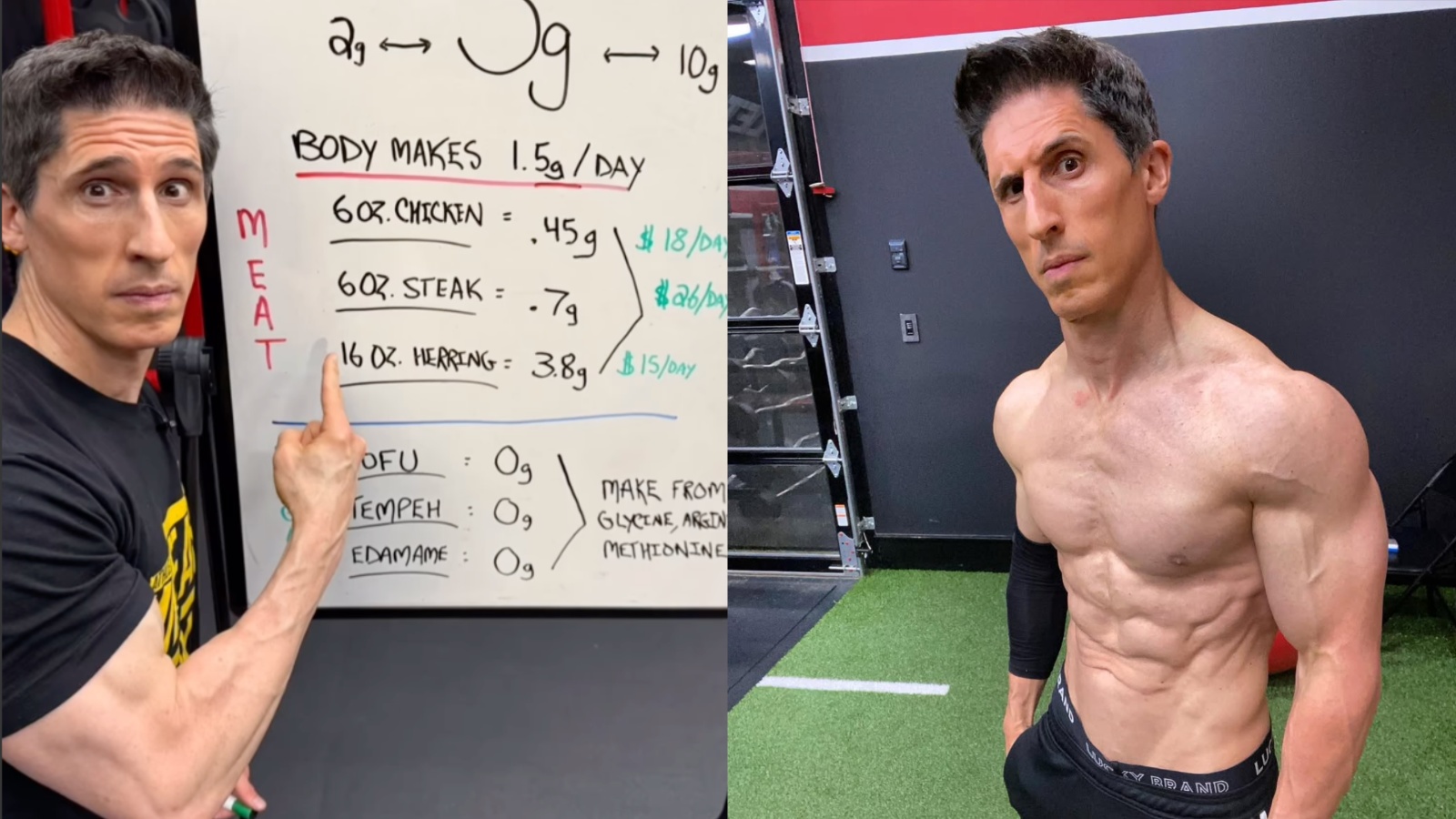Fitness coach Jeff Cavaliere has the inside scoop on one of the most popular supplements in fitness. On March 30, 2025, he offered a detailed account of when to use creatine, exploring its potential benefits and side effects.
Cavaliere is an authority on muscle building and performance, helping individuals sculpt their best physiques for years. Supplementation falls under that umbrella, and that includes creatine. Creatine is a naturally occurring compound found in foods like red meat and fish, but in small amounts.
It’s been shown in research and studies to support muscle growth and workout performance, making it one of the most sought-after supplements on the market. While it’s generally accepted for its utility in fitness settings, some still have reservations about its use, prompting Cavaliere to shed light on its potential benefits.
Jeff Cavaliere Discusses Potential Benefits and Side Effects Of Using Creatine
In a recent YouTube video, Cavaliere dispelled the myth that creatine supplementation causes balding. He chalks it up to the confusion people have between steroids and testosterone.
“When it comes to creatine and hair loss, I just don’t think the evidence is there. Again, I think this is stemming from this confusion people have between steroids, testosterone, and creatine and the effects one has on another.”
“Just because we think that elevating DHT will cause a loss of hair in that person, if you don’t see it happening, it may not be related. As a matter of fact, just training hard like those rugby players did can actually raise those levels of DHT. This is one of those areas where correlation does not equal causation.”
He adds that evidence doesn’t support that creatine use causes kidney damage, similar to Arnold Schwarzenegger’s findings.
“If there was ever any myth that was maybe only second to high protein diets causing your kidneys to fail, it’s going to be the fact that creatine supplementation causes your kidneys a lot of problems. It’s simply not the case and there’s no evidence for that.”
While creatine pulls water into muscle cells, Cavaliere explained that it doesn’t cause dehydration.
“Not everything you read online is accurate, especially if your source of information is Facebook. When we talk about dehydration and cramping, it’s actually not likely happening directly related to the creatine you’re supplementing with.”
“It pulls water into the muscle cells, maybe leaving a little less to support the other tissues in your body, but that doesn’t mean you have to get dehydration symptoms from that. Most often, the studies we see show protective effects from taking creatine versus not.”
Cavaliere highlights that timing doesn’t matter and that it’s not necessary to cycle on and off creatine.
“You can take this at any point in the day, you’re going to have the same type of benefits as long as you take it on a consistent basis to keep those storage levels high.”
“It’s pretty safe to continue to take this without having to get on or off. It’s a very safe supplement,” he adds.
Looking at dosages, he says to stick with two or three grams when using hydrochloride. When using monohydrate, he advocated for a dosage of five to 10 grams. He underlined that it can improve strength, allowing for heavier lifts over time.
“The stated dosages are really about two to three grams when you’re taking hydrochloride versus five to then 10 grams [of monohydrate].”
“A 300-pound squatter at the start of taking creatine might actually squatting 315, maybe even up to 345 pounds. Again, less pronounced if you’re talking about isolation lifts like a concentration curl. The gains are definitely real,” he shared.
Cavaliere also shared that older populations using creatine could benefit from less brain fog and help combat progressive neurological diseases.
“Decreased brain fog, increasing your memory, actually increasing overall brain function, so even when you have a state of sleep deprivation or if you’re stressed out, your brain is still operating at a higher functional level. Actually decreasing the incidence of progressive neurological diseases like MS, ALS, or Parkinson’s.
Having the ability to preserve muscle mass so that you’re not only keeping more of your muscle as you age but you’re decreasing the risks that are associated with muscle loss.”
This wasn’t Jeff Cavaliere’s first time breaking down creatine use. He recently broke down the key differences between its monohydrate and hydrochloride forms, revealing the most optimal dose to promote workout performance and strength gains.
Creatine remains one of the most widely studied supplements in the industry. He believes it has overarching benefits for just about every age group, but it’s always important to consult with a healthcare provider before starting any supplement.
RELATED: Jeff Cavaliere Discusses If You Can Build Muscle Over the Age of 40 Without TRT










Can you star taking creatine if you are over 70 years old